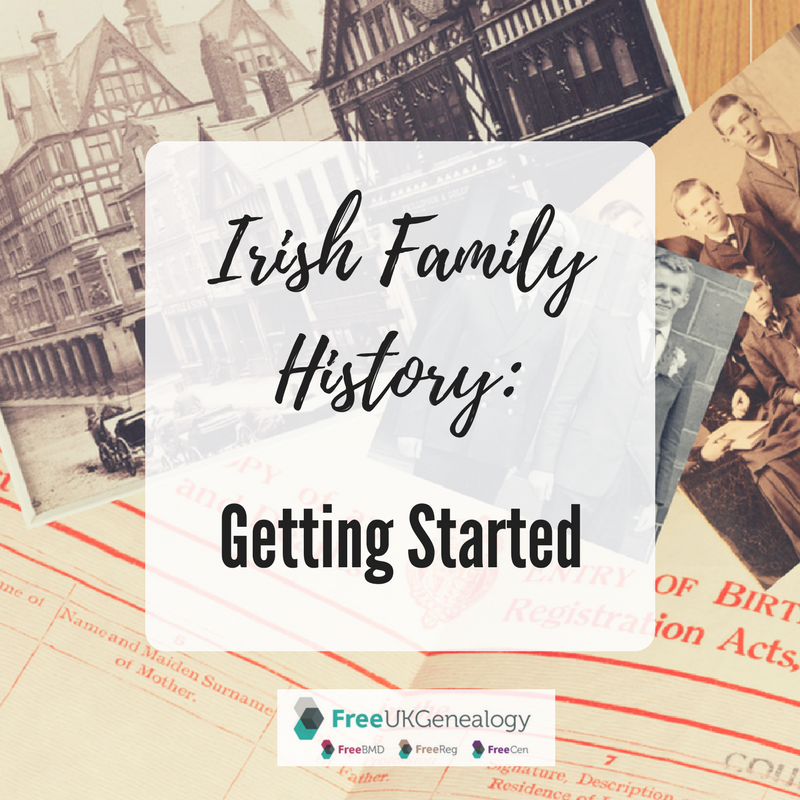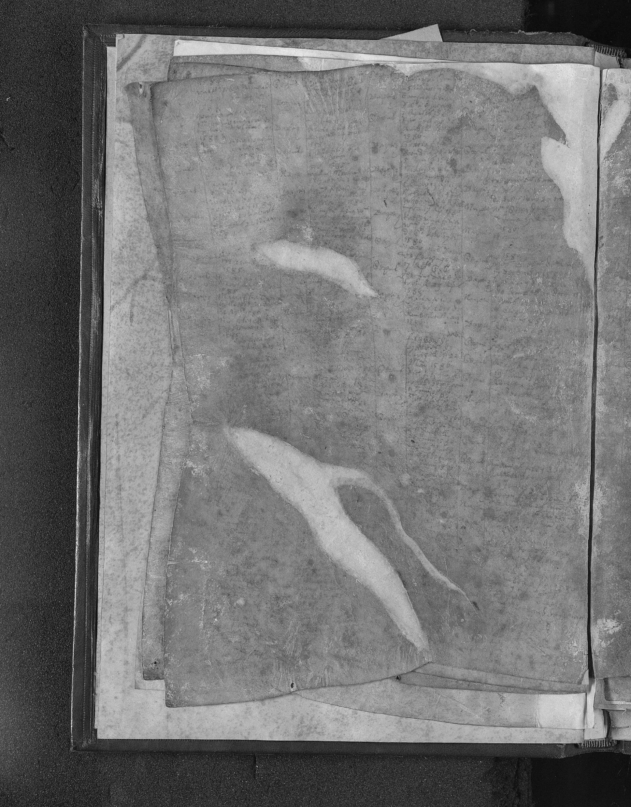Irish Family History: Getting Started

In the first of six guest posts on Researching your Irish Family History, Nicola Morris describes how to go about tracing your Irish ancestry.
*****************************************************************************************
The fallacy that I frequently hear about Irish family history research is that it is impossible because all of the records were destroyed. This is far from true. Yes, some vital records were destroyed, and these losses can make Irish family history research challenging and frequently frustrating, but there are plenty of sources that do survive, you just need to know where to find them.
Let’s start with what was actually destroyed and what survives. The most significant loss of records for Irish genealogy are the 19th century census returns. A census was undertaken in Ireland every decade from 1821. The returns for 1861, 1871, 1881 and 1891 were destroyed by Government order during the First World War, possibly because of a paper shortage. The remaining 19th century returns from 1821 to 1851 were largely destroyed in the 1922 Public Records Office fire. While this is a tremendous loss, it is not insurmountable. Irish genealogists have spent the last century identifying potential census substitutes that document the population during the same period. The 1901 and 1911 census survives intact and efforts are underway to have the 1926 census released by 2022.
The two other great losses from the 1922 Public Records Office fire are the large portion of Church of Ireland parish registers that were destroyed and testamentary records. However, as the majority of the Irish population was Roman Catholic and few owned enough property to leave bequests, these records only apply to a small portion of the Irish population.
The records for civil registration in Ireland, which commenced in 1864 when it became compulsory to register all births, deaths and marriages, survive in full. Roman Catholic parishes retained their own records and although the extent of surviving records varies from parish to parish, nearly every parish in Ireland is documented from at least the mid-19th century and in many cases from the 1830s and earlier. Many of these records are now available online on a number of different websites and in the articles to follow we will take a much closer look at how to find and search these sources for evidence of your Irish ancestors.
Things you need to start researching your family in Ireland
Before starting a search for your family in Ireland it is always sensible to try and gather as much information about them as possible from the records for the country in which they settled. Research in Ireland is most productive if you can focus on a specific area. Families with common surnames can be distinguished one from the other using their address. Establishing a county, parish or town and address for your ancestors before you start research in Ireland will make your research that little bit easier.
It is a good idea to try and establish where and when your Irish ancestor was born and the names of their parents and siblings and even extended family before you start. This help to locate the correct family in Ireland and avoids the danger of adopting the wrong Irish ancestors. I have met too many people who have plucked a person out of a database of Irish records because they have the correct name and were born at about the right time, but after years of research, turn out to belong to a different family.
Try to locate your Irish born ancestor in every UK census return. Returns for some years may state a county or even town of birth in Ireland. While it may only state Ireland as a place of birth in 1881, the 1891 return or 1911 return may give a more specific address.
Obtain a marriage certificate for your Irish born ancestor if they married in the UK, this should state their father’s name and occupation and possibly whether the father was alive at the time of marriage. Check the civil marriage certificate to see if the couple married in a Roman Catholic Church. Some Roman Catholic parish marriage registers, particularly in the later 19th century, recorded the names of both parents of the bride and groom.
More recent death certificates in the UK record a date and place of birth and the maiden name of a married woman. While the given dates of birth are not always accurate, they can be a good guide for when your Irish ancestor was born.
Roman Catholic baptismal records for the children of your Irish born ancestor should record the names of sponsors or Godparents to a baptisms. Sponsors with the same surname may have been siblings of your ancestor who also emigrated. Census returns and marriage and death certificates for siblings of your ancestor may contain more clues about the family’s origins in Ireland. It is also worth looking for the parents of your Irish born ancestor in UK census returns. While the parents may not have emigrated with their children, it is not uncommon to find the widowed mother settling with one of her married children in the UK later in her life, or following the death of her husband in Ireland. Cousins and aunts and uncles can also show up in census returns providing more potential clues to your Irish born ancestor’s origins.
Civil registration in Ireland only commenced in 1864 and is a complete record of all births, marriages and deaths from that date, although not all events were registered with the civil authorities. If you can find a member of your Irish born ancestor’s family who might have been born or married in Ireland after 1864, this is the person to pursue first. For example, should you find a niece of nephew of your ancestor who was born in Ireland in 1872 and is living in the house of your ancestor in the UK by 1891, they should be pursued. If their Irish birth certificate can be located, it will provide an address for their family, which is very likely in the vicinity of your own ancestor’s family. This will allow you to focus your Irish research on records for a specific area.
For example, a man named James Kelly, was born in Ireland in about 1858 and settled in England. In the 1901 census his niece, Mary Gallagher, was residing in his household with her husband and children. Her children were born in England. A birth certificate for one of Mary’s children established her maiden name was Cooney. No record was found for her marriage in England, but a search of the Irish civil marriage index found her marriage in Ireland. The marriage certificate established her address and father’s name. A record of her birth was found, which confirmed her mother’s maiden name as Kelly. The marriage of Mary’s parents in Ireland identified the father of James Kelly and James’ sister’s family address. Although this was a round-about way of locating the family, we did not know enough about James Kelly from UK records to be able to locate his birth in Ireland. It was the details relating to his niece that identified the correct family.
Outside of large urban areas like Manchester and Liverpool, it is also worth looking at the other Irish emigrants who settled in the same place. They may have come from the same area in Ireland.
Researching the wider community and their origins may lead to a specific location in Ireland. Family or community groups may have emigrated to work in a specific industry. They may have been employed in the same industry in Ireland. It is possible that they were tenants of the same landowner, who held property in both Ireland and England.
Some occupational records can state a place of birth. British Army service records, for example, should state the soldier’s county and parish of birth in Ireland.
Once you have scoured UK records and built a detailed profile of your Irish born ancestor you are ready to start searching for evidence of them in Ireland.
*****************************************************
Nicola Morris M.A.G.I is a professional genealogist and member of Accredited Genealogists Ireland. She is the director of Timeline Research Ltd, one of Ireland’s leading genealogical research companies. Nicola has undertaken the Irish research for WDYTYA? in the UK and US and has appeared in numerous episodes. She was also the presenter of the first series of the Genealogy Roadshow broadcast in Ireland in 2011.

